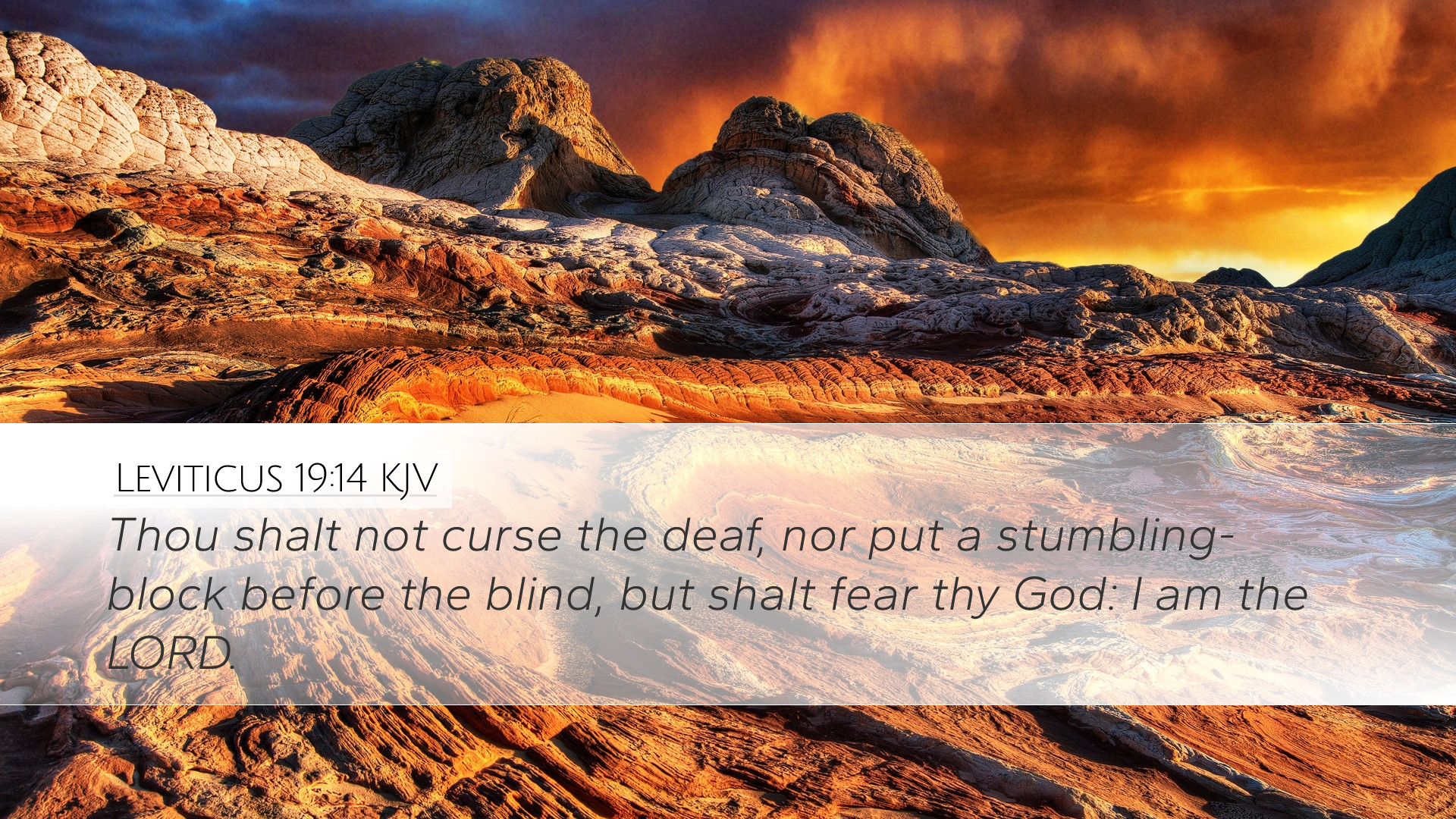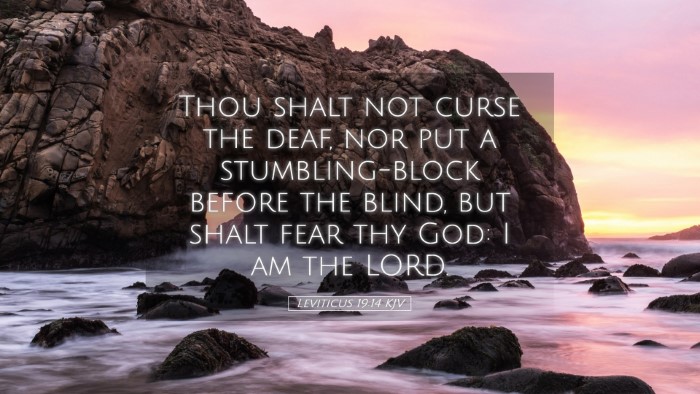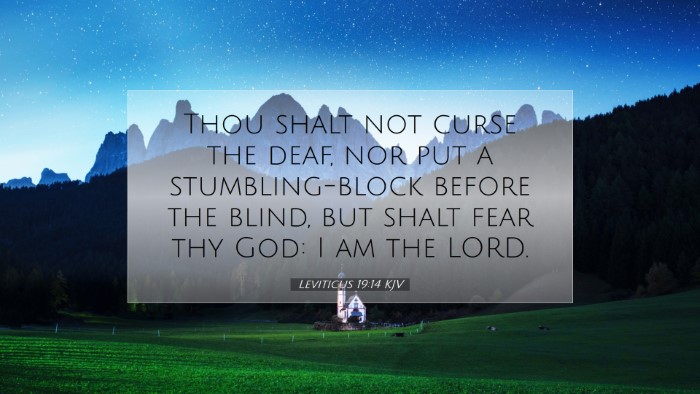Commentary on Leviticus 19:14
Verse Reference: Leviticus 19:14 - "Thou shalt not curse the deaf, nor put a stumblingblock before the blind, but shalt fear thy God: I am the Lord."
Introduction
This verse is part of the Holiness Code, a collection of laws and ethical teachings intended to guide the behavior of the Israelites. It emphasizes respect for the vulnerable within the community, underscoring a foundational biblical principle that is mirrored throughout Scripture.
Understanding the Text
The verse encompasses two distinct but related prohibitions:
- 1. Cursing the Deaf: This prohibition highlights the moral obligation to refrain from speaking ill of others, particularly those who cannot hear. It reflects a greater command to exhibit integrity and kindness in interpersonal relationships.
- 2. Setting a Stumbling Block Before the Blind: This metaphor indicates the necessity of ensuring that one’s actions do not lead others to harm or difficulty. It calls for a proactive form of love and care that extends beyond mere inaction.
Theological Insights
According to Matthew Henry, this verse teaches the importance of justice and equity, highlighting that God's laws are intended to protect those who are weak and vulnerable. He notes that God's love should inspire people to behave accordingly:
"As the Lord has had pity upon the poor, so we must have compassion on those in need, showing kindness to the helpless."
Albert Barnes adds that this edict extends the understanding of justice and mercy, suggesting that one's ethical conduct should manifest not only in terms of legal compliance but also in a compassionate societal engagement:
"These admonitions serve to prevent cruelty and injustice, promoting an ethos of communal respect that aligns with the character of God."
Practical Applications
The implications of this verse are extensive, not only for the Israelites of the time but also for modern-day believers:
- Promoting Social Justice: Leaders and laypersons alike are called to advocate for those who have no voice or whose suffering goes unnoticed.
- Fostering Inclusivity: There is a theological mandate to create spaces that are welcoming and accommodating to all, reflecting God's love and grace.
- Self-Examination: Believers are encouraged to assess their own actions and attitudes, ensuring they do not inadvertently contribute to others' struggles.
Wider Context in Leviticus
Leviticus 19 is significant in that it balances holiness with humanity. The commands given throughout this chapter frequently return to themes of love, respect, and community, which culminate in the call to love one's neighbor as oneself (Leviticus 19:18). Adam Clarke points out that these regulations indicate:
"God’s desire for His people to reflect His character in their dealings, thereby understanding that one’s actions directly dishonor God when they promote injustice or diminish another's dignity."
Conclusion
In summary, Leviticus 19:14 brings to light profound ethical principles that encapsulate both the spirit of the law and the essence of true love for one another. As stated in the verse, the fear of God undergirds these teachings, compelling the community to uphold a standard of behavior that aligns with divine expectations. In reflecting on this verse, pastors, students, and scholars are reminded that their call includes the duty to stand for justice, serve the vulnerable, and promote a culture ingrained with empathy and mercy. May they embody the spirit of this scripture as they seek to represent God's love in a world in need of healing.


